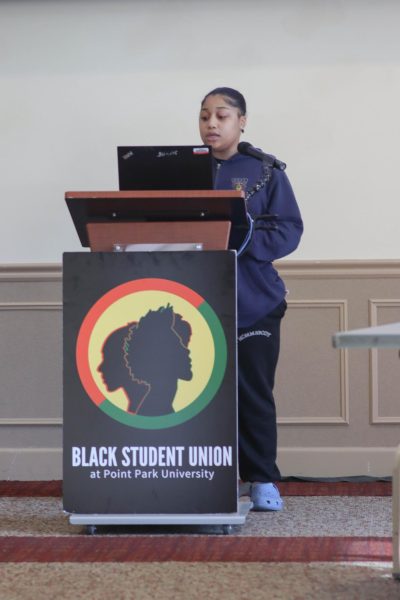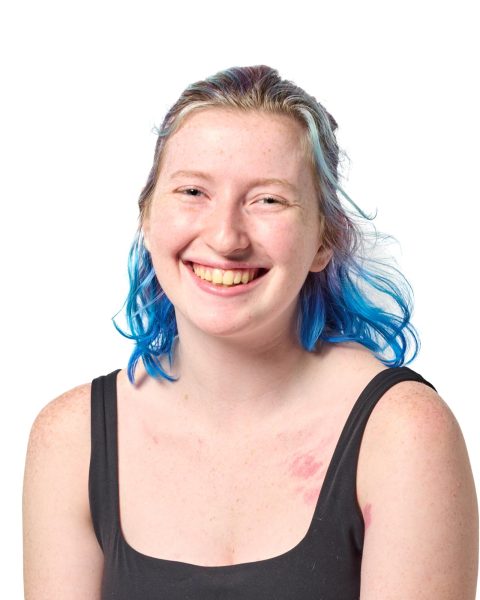The month of October is recognized internationally as Breast Cancer Awareness Month, so the Black Student Union (BSU) held an event on Wednesday, Oct. 9, spreading awareness about breast cancer.
The event was organized by Amoriah Selby, BSU event coordinator and a junior forensic psychology major. She wanted to host a breast cancer awareness event because, even after three years of being on campus, she’s never seen anything breast cancer awareness related.
“Back at home, the sports teams support breast cancer awareness,” Selby said. “The Ravens had to wear pink jerseys to certain games.”
Selby wanted to bring something similar to Point Park. Selby said she feels like Point Park deserves to know about the disease, and the health center doesn’t do enough about it.
She presented information about breast cancer for the event.

Breast cancer is the most common type of cancer. Women make up the majority of people who are diagnosed with breast cancer, but men can also be diagnosed with it. Men make up less than 1% of breast cancer cases.
Donovan Roundtree, a first-year criminal justice student, came to the event to learn more about breast cancer because he has two aunts that survived it.
“Knowing men can get it is very scary, especially if it runs in the family,” Roundtree said. “I want to get tested right now, but after I call my mom because I don’t want her to have breast cancer.”
Breast cancer has four leading factors. One factor is family history. If a family member has or had breast cancer, you are more likely to get it. Also, those with family history with breast cancer are more likely to be at risk for mutations like BRCA1 and BRCA2, which are linked to a higher risk of breast cancer.
Selby recommends that, if your family has a history of breast cancer, get tested.
Keysha Robinson, BSU membership coordinator and a senior criminal justice major, believes her aunt passed away from breast cancer.
“I’m not too educated on it, but I think it’s very important for people, especially females, since more females get it than males, to get educated and do examinations,” Robinson said. “Something that stood out to me was that, if one parent has it, then most likely you would too, which is scary.”
Very few people attended the event. Only about 5 people were in attendance including people from the Globe and BSU.
“I’m kind of disappointed, but it’s all trial and error,” said Selby.
Selby is grateful to the people that did come to the event. She hopes that the message will be spread around campus to others, especially to African American students, as breast cancer is disproportionately more lethal for African American people.
Women over the age of 50 are more likely to be diagnosed with breast cancer, but they are not the only ones who can be diagnosed with it.
There are multiple courses of treatment, and there is a 90% survival rate. The likelihood of survival increases if it is caught in the early stages.
Most doctors recommend doing a self-examination to check for breast cancer. There are resources online that describe how to perform your own examination. One of those resources is the National Breast Cancer Foundation at https://www.nationalbreastcancer.org/breast-self-exam/.
Remember, if something feels off, don’t hesitate to get in contact with your doctor.





